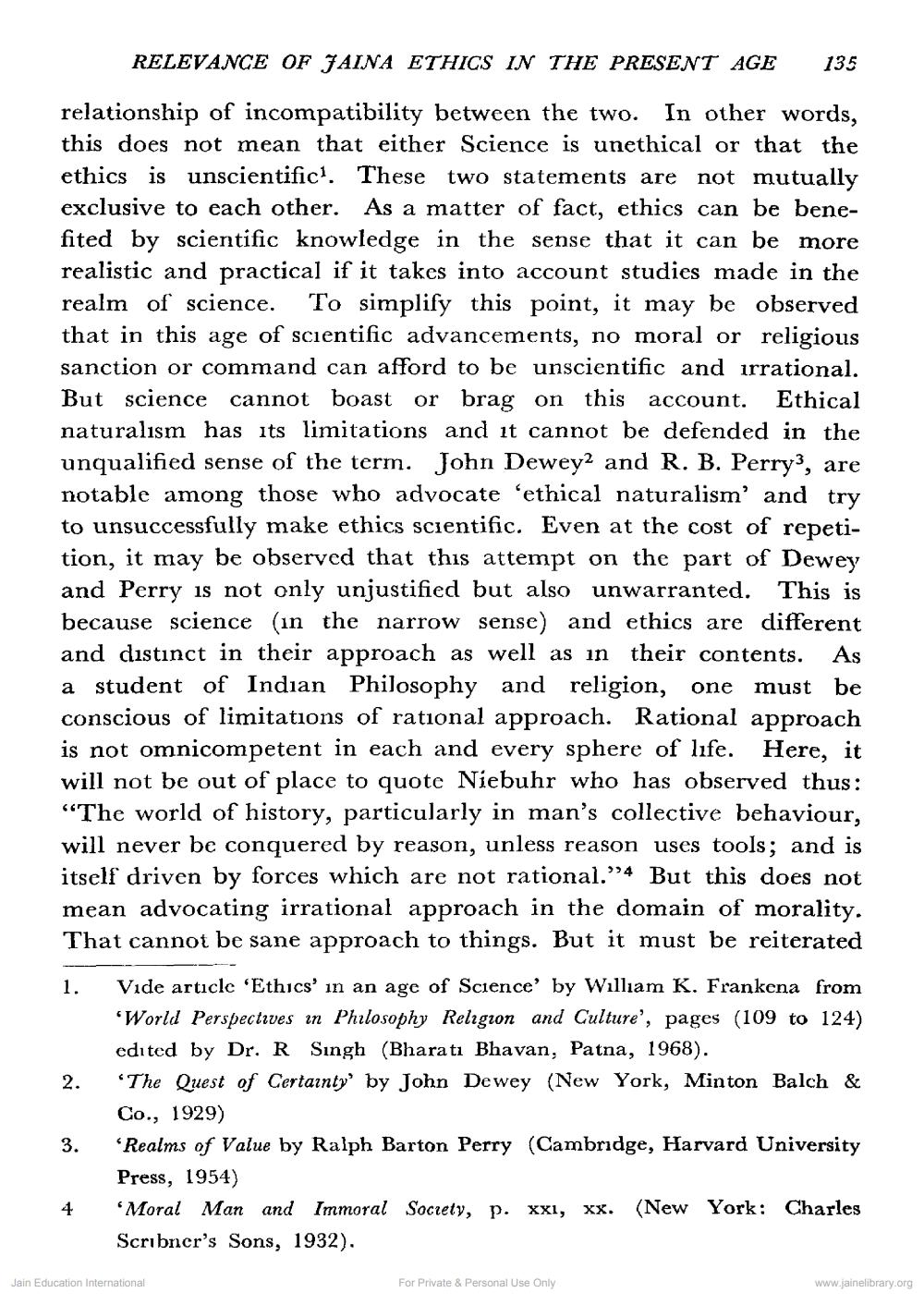________________
RELEVANCE OF JAINA ETHICS IN THE PRESENT AGE
135
relationship of incompatibility between the two. In other words, this does not mean that either Science is unethical or that the ethics is unscientifict. These two statements are not mutually exclusive to each other. As a matter of fact, ethics can be benefited by scientific knowledge in the sense that it can be more realistic and practical if it takes into account studies made in the realm of science. To simplify this point, it may be observed that in this age of scientific advancements, no moral or religious sanction or command can afford to be unscientific and irrational. But science cannot boast or brag on this account. Ethical naturalism has its limitations and it cannot be defended in the unqualified sense of the term. John Dewey2 and R. B. Perry), are notable among those who advocate 'ethical naturalism' and try to unsuccessfully make ethics scientific. Even at the cost of repetition, it may be observed that this attempt on the part of Dewey and Perry is not only unjustified but also unwarranted. This is because science in the narrow sense) and ethics are different and distinct in their approach as well as in their contents. As a student of Indian Philosophy and religion, one must be conscious of limitations of rational approach. Rational approach is not omnicompetent in each and every sphere of life. Here, it will not be out of place to quote Niebuhr who has observed thus: “The world of history, particularly in man's collective behaviour, will never be conquered by reason, unless reason uses tools; and is itself driven by forces which are not rational.”4 But this does not mean advocating irrational approach in the domain of morality. That cannot be sane approach to things. But it must be reiterated
1.
Vide article 'Ethics' in an age of Science' by William K. Frankena from World Perspectives in Philosophy Religion and Culture', pages (109 to 124) edited by Dr. R Singh (Bharati Bhavan, Patna, 1968). 'The Quest of Certainty' by John Dewey (New York, Minton Balch & Co., 1929) 'Realms of Value by Ralph Barton Perry (Cambridge, Harvard University Press, 1954) Moral Man and Immoral Society, p. xxl, xx. (New York: Charles Scribner's Sons, 1932).
Jain Education International
For Private & Personal Use Only
www.jainelibrary.org




